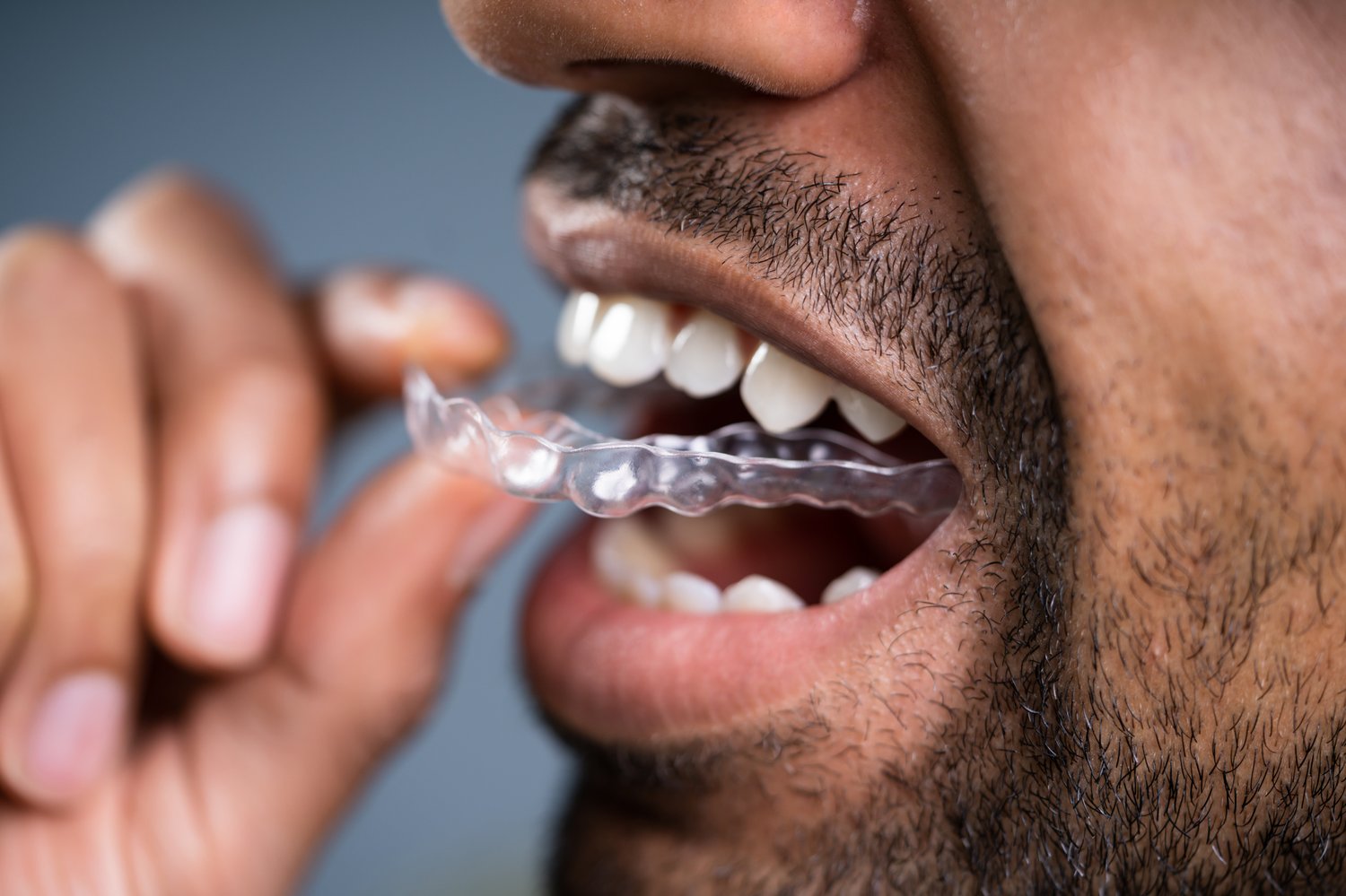If you’ve been wondering, what triggers teeth grinding during sleep? you’re not alone. Teeth grinding, or nocturnal Teeth Grinding, affects millions of people worldwide and often occurs without conscious awareness. Understanding the various triggers behind this condition is essential to managing it effectively and protecting your dental health.
- Teeth grinding happens mostly during sleep without voluntary control
- Multiple physical, psychological, and environmental factors contribute
- Identifying triggers helps tailor prevention and treatment strategies
- Common in both adults and children, but severity varies
- Early intervention can prevent tooth damage and jaw pain
Stress and Anxiety as Major Triggers:
One of the most common causes of teeth grinding during sleep is psychological stress and anxiety.
- Emotional tension activates the nervous system, increasing muscle activity
- Stress can lead to unconscious clenching or grinding at night
- Anxiety disorders and stressful life events worsen bruxism symptoms
- Poor stress management techniques exacerbate nighttime grinding
- Relaxation exercises and therapy can help reduce grinding frequency
Addressing stress is a critical step in managing bruxism effectively.
Sleep Disorders and Their Impact on Grinding:
Sleep-related problems are strongly linked to increased teeth grinding during sleep.
- Obstructive sleep apnea often coexists with bruxism
- Interrupted sleep cycles trigger muscle activity leading to grinding
- Restless leg syndrome and other disturbances may worsen symptoms
- Poor sleep hygiene increases likelihood of nocturnal clenching
- Treating underlying sleep disorders improves bruxism control
Proper sleep evaluation can uncover hidden causes of grinding.
Dental Issues That Can Trigger Bruxism:
Certain dental conditions and bite problems can contribute to grinding during sleep.
- Misaligned teeth or malocclusion create uneven pressure in the mouth
- Missing teeth or dental restorations may alter bite patterns
- Jaw joint disorders (TMJ) increase muscle tension and grinding risk
- Teeth sensitivity or pain can trigger unconscious clenching
- Orthodontic appliances sometimes increase grinding temporarily
Regular dental checkups help detect and address these contributing factors.
Lifestyle and Behavioral Triggers:
Habits and lifestyle choices also influence the likelihood of grinding teeth at night.
- Excessive caffeine or alcohol consumption increases muscle activity
- Smoking has been linked to higher rates of bruxism
- Use of certain medications and recreational drugs can exacerbate grinding
- High-intensity physical activity close to bedtime may trigger jaw tension
- Poor sleep habits, such as irregular bedtimes, increase stress on the jaw
Modifying lifestyle factors can reduce teeth grinding episodes significantly.
Neurological and Genetic Factors:
In some cases, neurological or hereditary influences play a role in sleep Teeth Grinding Treatment.
- Certain neurological conditions, such as Parkinson’s disease, may increase grinding
- Genetic predisposition means bruxism can run in families
- Neurochemical imbalances in the brain affect muscle control during sleep
- Children with developmental disorders show higher rates of bruxism
- Research continues to explore these complex underlying causes
Recognizing these factors guides personalized treatment approaches.
How to Manage and Prevent Teeth Grinding Triggers?
Effective management starts with identifying and minimizing your individual triggers.
- Practice stress reduction techniques like meditation or deep breathing
- Maintain good sleep hygiene with regular schedules and restful environments
- Avoid stimulants like caffeine, nicotine, and alcohol before bedtime
- Consult your dentist about dental corrections or protective night guards
- Seek medical advice for sleep disorders or neurological conditions
Combining these strategies can greatly reduce the frequency and severity of nighttime teeth grinding.

